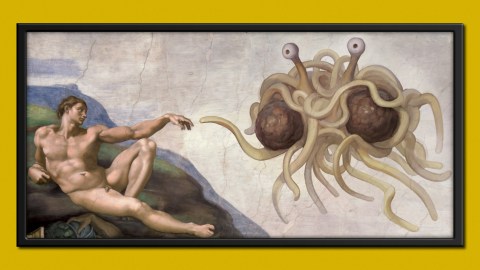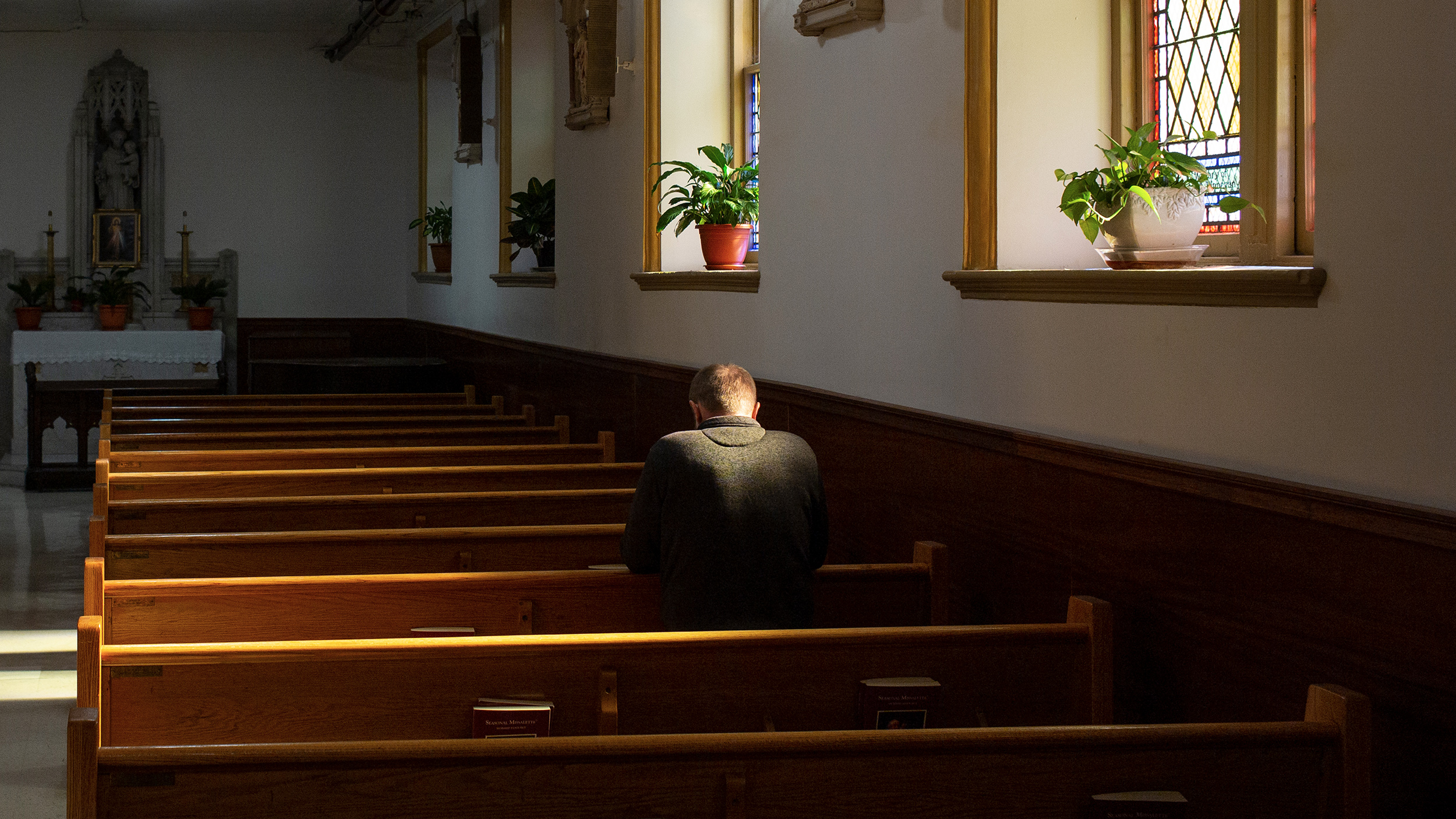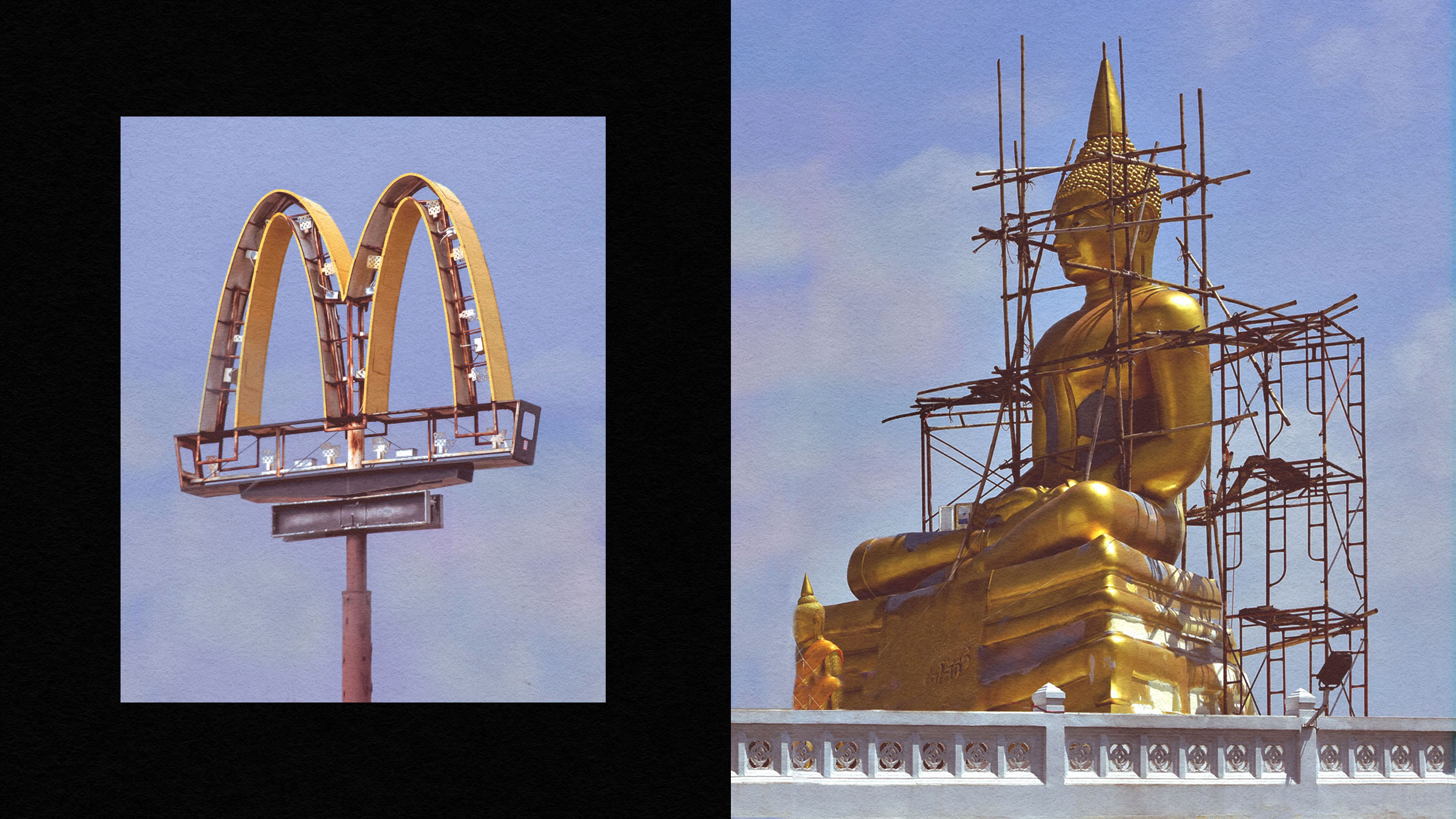Germany denies Pastafarians religious rights

(Public Domain)
- The Church of the Flying Spaghetti Monster has been denied the rights of a religion in Germany.
- Church members were seeking permission to erect public signage.
- Are views of opposition expressed as satire less valid than the ideas they oppose?
There are those who believe in God, whatever that word means, and there are those who don’t. And then there are those in the latter group who consider their best defense against the first group to be the invention of religion of their own. The sillier the better.
There’ve been quite a few such parodies: J.R. “Bob” Dobbs’ Church of the SubGenius, The First Church of the Gooey Death and Discount House of Worship, and the Church of the Flying Spaghetti Monster (or FSM), whose members are referred to as “Pastafarians.” Now, the Constitutional Court in Germany has ruled that the Church of the FSM is not a real religion.
No duh, though, a true Pastafarian might well question what “real” means, anyway.
Picture Alliance, DPA
Signs of the non-cross
As for a bit of context, the Church of the FSM was seeking the right to erect billboards throughout Germany to announce meeting locations and times so their members might more easily find local “noodle masses” — at which, yes, “noodle prayers” would be offered. Before the Constitutional Court’s ruling, the Brandenburg Court said nope, denying their request. The judges found that there’s not enough evidence for belief in the FSM, which may strike atheists everywhere as ironic.
The higher-ups at the Church of the FSM say they’re considering moving their efforts to the European Court of Human Rights.
Yes, that’s a colander on Mienke de Wilde’s head. Image source: Piroschka van de Wouw/EPA
The FSM beyond Germany
In August, Mienke de Wilde, a Dutch Pastafarian who wished to wear a strainer on her head for her Netherlands passport photo, was prevented from doing so. She told The Guardian at the time that just because the Church is a satire doesn’t mean its members aren’t serious about what it stands for.
“I can imagine that it all looks very odd if you don’t believe,” she said. “But that’s the case with many faiths if you don’t believe in them — people who walk on water or divide themselves in two, for example. I find other religions unbelievable.”
FSM license plates and license-plate frames are popular in the U.S. Still, in 2014 an inmate at Nebraska State Penitentiary petitioned to have his “belief” in the FSM respected as deserving of rights, and was denied by U.S. District Judge John Gerrard. The judge wrote,
The court finds that FSMism is not a ‘religion’ within the meaning of the relevant federal statutes and constitutional jurisprudence. It is, rather, a parody, intended to advance an argument about science, the evolution of life, and the place of religion in public education. Those are important issues, and FSMism contains a serious argument — but that does not mean that the trappings of the satire used to make that argument are entitled to protection as a ‘religion.’
Note, though, that the group is not meeting the same resistance everywhere: The Church of the FSM was recognized as a valid religion in New Zealand in 2017.





